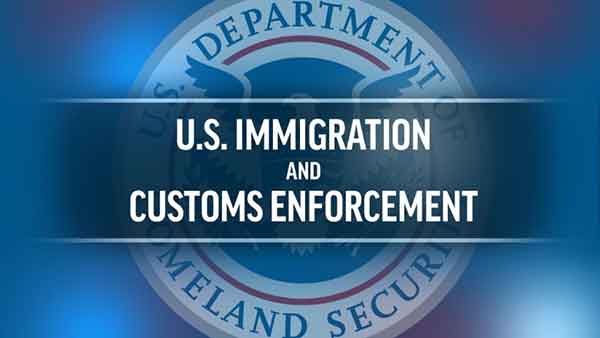鄭博仁律師:U.S. Immigration and New CA Immigrant Worker Protection Act
01/08/2018 鄭博仁聯合律師事務所U.S. Immigration and New CA Immigrant Worker Protection Act

The U.S. Immigration and Customs Enforcement acting director announced that the agency will quadruple to quintuple the number of workplace inspections it conducts in the coming year. Agents have been directed to prosecute employers as well as detain and deport undocumented workers found in such investigations. Employers are encouraged to ensure full compliance with Form I-9 requirements and to be prepared for this increase in routine immigration, and should be reminded that potential fines for employers who fail to comply with strict verification, recordkeeping, and document retention requirements with regard to Form I-9 were recently doubled.
**Here is the 2018 CA Bill regarding - Worksite Immigration Enforcement and Protections (effective January 1, 2018)
The Immigrant Worker Protection Act – IWPA (AB 450) — part of a package of bills the governor signed to create a “sanctuary state” — provides workers with protection from immigration enforcement while on the job.
IWPA prohibits employers from:
- Providing federal immigration enforcement agents access to nonpublic areas of a business without a judicial warrant; and
- Providing agents access to employee records without a subpoena or judicial warrant. This prohibition does not apply to Form I-9 or other documents for which a Notice of Inspection was provided to the employer. However, employers must follow specific requirements related to Form I-9 inspections.
An employer that provides access in violation of the IWPA can be fined anywhere from $2,000 to $5,000 for a first violation and $5,000 to $10,000 for each subsequent violation.
Regarding Form I-9 inspections, the new CA Bill, requires employers to:
- Post a notice to all current employees informing them of any federal immigration agency’s inspections of Forms I-9 or other employment records within 72 hours of receiving Notice of Inspection. AB 450 requires that the notice contain specific information about the inspection and that it be posted in the language normally used to communicate employment-related information. Employers must comply with this posting requirement beginning January 1, 2018, even though the Labor Commissioner has until July 1, 2018, to create a model posting template. The notice must also be given to the collective bargaining representative, if any.
- Provide a copy of the federal Notice of Inspection to an affected employee upon reasonable request.
- Give each affected employee and the employee’s collective bargaining representative a copy of the inspection results and a written notice of the employer’s and employee’s obligations arising from the inspection. This must be done within 72 hours of receiving the results and specific information must be included. An “affected employee” is one identified by the inspection results as potentially lacking work authorization or having document deficiencies.
An employer that fails to follow these notice requirements can be fined between $2,000 to $5,000 for a first violation and $5,000 to $10,000 for each subsequent violation.
This bill also makes it unlawful for employers to reverify the employment eligibility of current employees in a time or manner not allowed by federal employment eligibility verification laws. Federal law already prohibits unlawful reverification practices, such as reverification of unexpired documentation. However, this bill adds an additional state civil penalty of up to $10,000.

